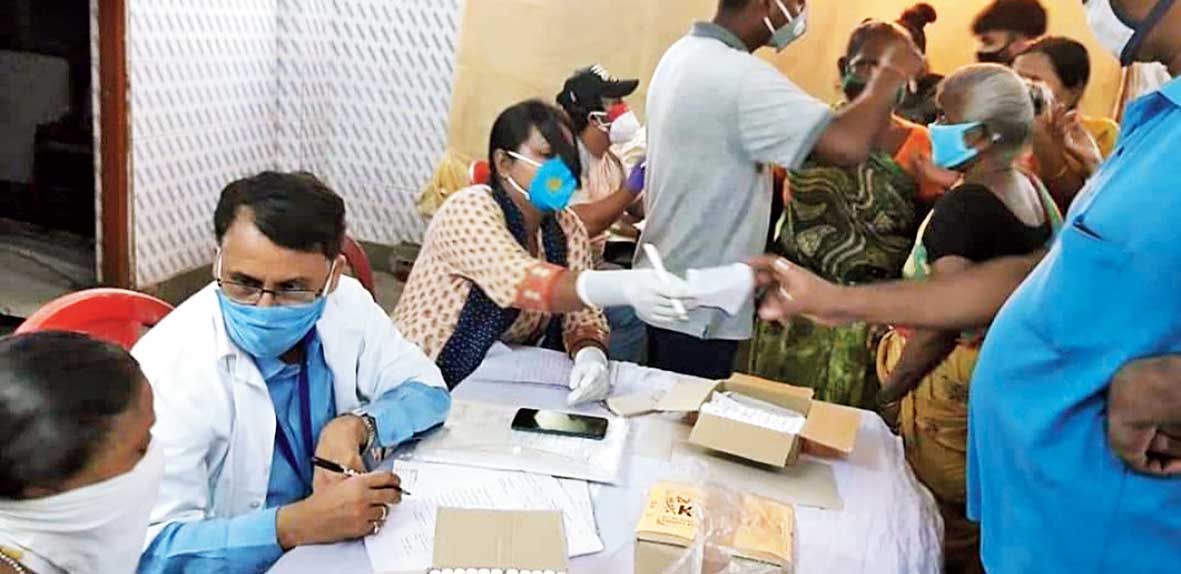The diplomatic outreach by India over the past week to get countries to help shore up the overwhelmed Indian medical infrastructure has revealed how ill-prepared the country was to deal with the Covid surge.
As countries are lining up assistance by way of oxygen, oxygen cylinders, oxygen concentrators, ventilators, personal protective equipment and testing kits, what they are essentially doing is dipping into the stockpiles they have created over the past year to deal with a surge.
Australia is one such country which is planning to use its stockpile to rush ventilators to India. Australian Prime Minister Scott Morrison has announced that his government would send 500 non-invasive ventilators to India.
A day ahead of the Australian cabinet meeting on Tuesday to discuss assistance to India, federal health minister Greg Hunt was quoted by ABC as stating that New Delhi has requested physical supply of oxygen.
The Australian government will reach out to the states to see if any of the oxygen supplies can be donated, he said, adding that the federal government can give non-invasive ventilators in the national stockpile after keeping a reserve.
According to the news report, “the Commonwealth (had) ramped up purchases of ventilators in preparation for a worst-case Covid-19 scenario last year”.
Likewise, Ireland is sending 700 oxygen concentrators to India from the stocks it had purchased last year for use in a field hospital atmosphere as part of the efforts to deal with the pandemic in the country.
Other smaller countries chipping in include:
⚫Singapore: 500 BiPAPs (non-invasive ventilators), 250 oxygen concentrators, four cryogenic oxygen containers and other medical supplies.
⚫Saudi Arabia: 80MT of liquid oxygen.
⚫Hong Kong: 800 oxygen concentrators.
⚫Thailand: Four cryogenic oxygen tanks.
⚫UAE: Six cryogenic oxygen containers.
It has also emerged that India, which is facing a vaccine shortage in the midst of the deadly second wave of the Covid-19, has not asked Washington for some of the ready-to-use vaccines that the US has in its stockpile.
This was disclosed on Monday by senior officials of the Biden administration in a background briefing in Washington on the pandemic situation in India. The briefing followed a flurry of contacts between the two countries, including a telephone conversation between President Joe Biden and Prime Minister Narendra Modi earlier on Monday.
According to officials, what India has requested is raw materials for the production of AstraZeneca Covishield vaccine at the Serum Institute of India. In view of the situation in India, the US has decided to divert its own order of supplies to the Serum Institute for manufacturing the vaccine.
Although it was not specified as such, India could get some of the 60 million doses of AstraZeneca that is under production in the US but not authorised for use in the country. The US plans to share these with other countries over the next two months as they become available.
Biden told a media conference on Tuesday that he intended to send vaccines to India and had discussed this with Modi. But the President did not provide a timeline.
Under attack for what is widely perceived as a belated response to the situation in India, particularly the refusal to ease restrictions on the export of raw materials needed for the manufacture of vaccines, Biden administration officials maintained that the Defence Production Act (DPA) is not the cause for the vaccine shortages as is being made out by some quarters in India.
“There’s just more global manufacturing happening everywhere in the world than suppliers can currently support,” an official said.
The DPA’s priority ratings requires American companies to prioritise US government contracts ahead of other contracts that they have in place for US manufacturing. “But what it does not mean is an export ban or a de facto ban or an embargo or any restrictions on sales to any other outside clients or customers anywhere. Companies are able to export however they need,” an official said.
Through the briefing, it was clear that the US was extending support to India on the vaccine front essentially because it finds itself in a comfortable position at home on this count. This is in sharp contrast to the way in which the Modi government sought brownie points with its Vaccine Maitri initiative — donating vaccines to nearly 50 countries — when it had stocks to cover only about 10 per cent of the population at home after declaring in January-end that it had defeated the coronavirus even though thousands of new cases were being reported.












